With the onset of summer, we adjust our general lifestyle, including our dressing style and the time we spend outdoors. Domestic birds like ducks, turkeys, geese, and chickens equally feel the discomfort of the simmering summer sun.
Worse still, they spend all day outdoors and can’t do much to deal with the situation. Therefore, they require your extra care on hotter-than-usual days.
So, what temperatures are too high for ducks, and how can you tell they are too hot?
Luckily, this article is here to answer these questions and give you 11 tips for keeping your ducks cool on the hottest days. Read on to find out more!
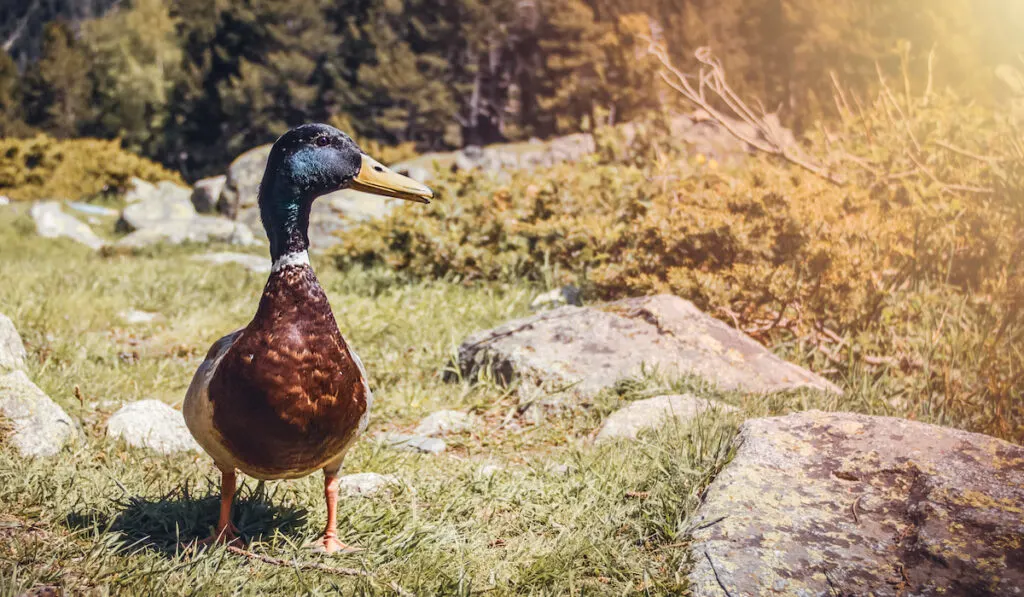
Table of Contents
How Hot Is Too Hot for Ducks?
The optimal body temperature for geese and ducks is 107.5°F (41.6°C). If this temperature increases by more than 39°F (3.8°C), they experience heat stress. (source)
Under normal conditions, ducks can maintain safe body temperature levels provided they get sufficient water and shade. However, the extreme summer heat renders the situation unbearable sometimes.
How to Tell if Your Ducks Are Hot
When the ducks’ core body temperatures increase above average, they react in various ways. The aim of their reaction is to lose heat and maintain their core body temperature.
Some of the signs of heat stress in ducks include:
- Seating or standing with eyes closed
- Panting
- Increased water intake
- Obvious distress
- Not moving
- Lying on the side
- Raised or droopy wings
- Reduced feed intake
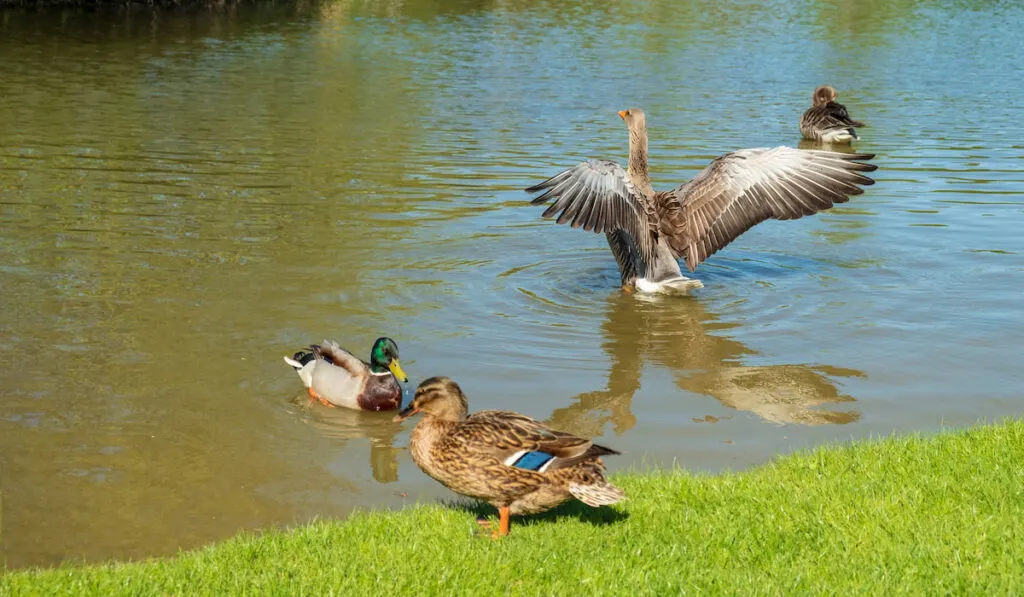
Moreover, some of these reactions, such as panting, involve muscle action. Muscle action generates more heat energy and could further increase core body temperature. (source)
Thus, the birds showing these signs need immediate attention. You should move them to a shady and well-ventilated space and immerse their feet in cool water.
Luckily, there are several measures you can put in place to prevent such emergencies. Here are eleven tips to help keep your ducks cool in the extreme summer heat and to avoid heat stress and stroke:
1. Build Them a Pond or Swimming Pool
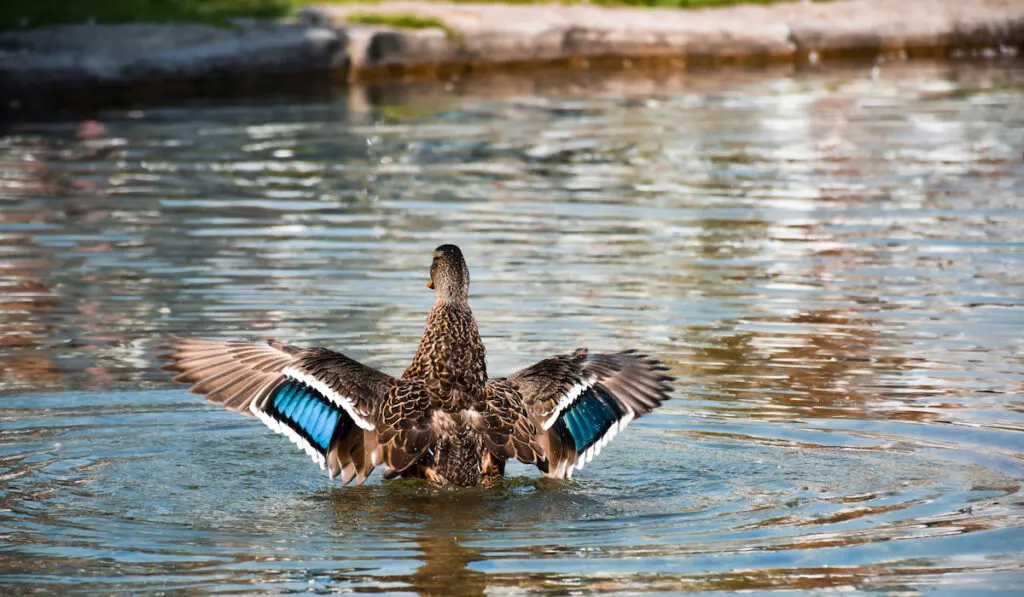
Did you know that ducks love swimming? These birds would love it if you allowed them to splash around all year, especially during summer.
When temperatures rise, they will appreciate nothing more than diving into a pond or pool.
If you’re looking for the right alternative to pools and ponds, you can consider many other inexpensive options, such as large containers, garden tubs, or kiddie pools.
2. Offer Them Sufficient Shade
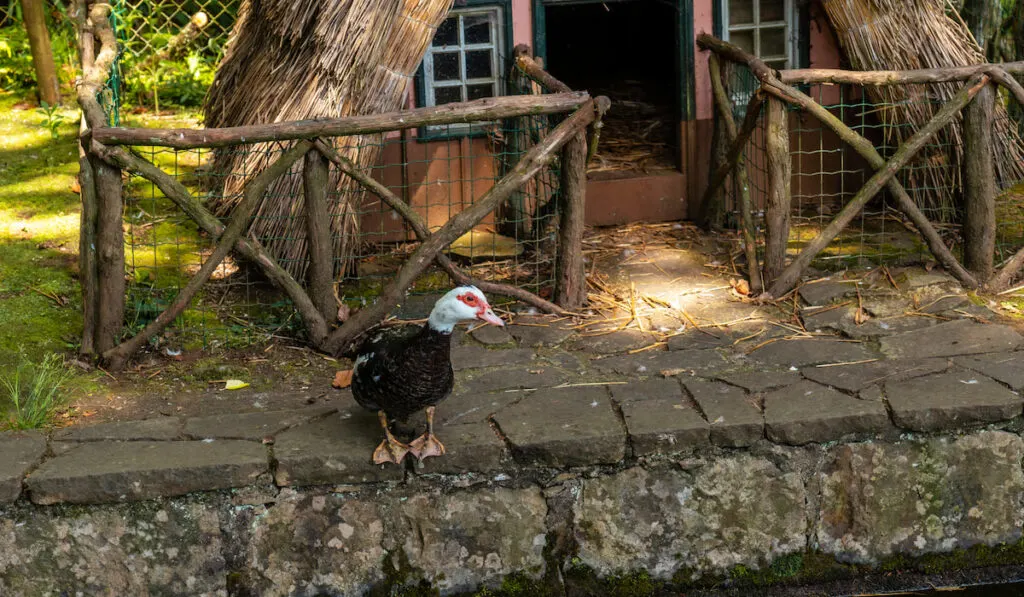
Shade is the most effective way of keeping your ducks cool from the day’s heat. Also, the natural shade under trees has sufficient airflow, facilitating perspiration.
If you rear ducks, you must have noticed them trying to find a shady spot as temperatures soar during the day. When it comes to providing shade for your ducks, the options are endless. You can:
- Construct a partially covered pen
- Use a shade screen
- Plant some bushes along the perimeter of your duck run
- Construct a raised duck housing; ducks will love the cool shade underneath
3. Ensure They Get Out Early
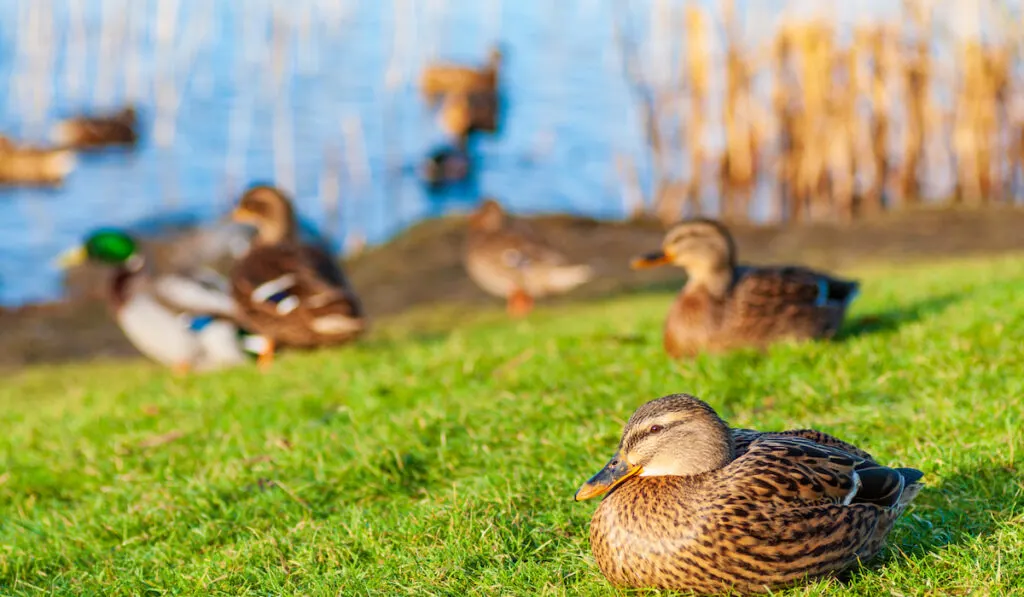
Ensure your ducks spend as much time outside as possible. Regardless of how efficiently ventilated your duck housing is, it will always be hotter inside than outside.
Get them out as early as possible and put them back in for the night as late as possible.
You can use an automated door opener to program the time you want them to go outdoors or inside.
4. Offer Them Water-Dense Treats
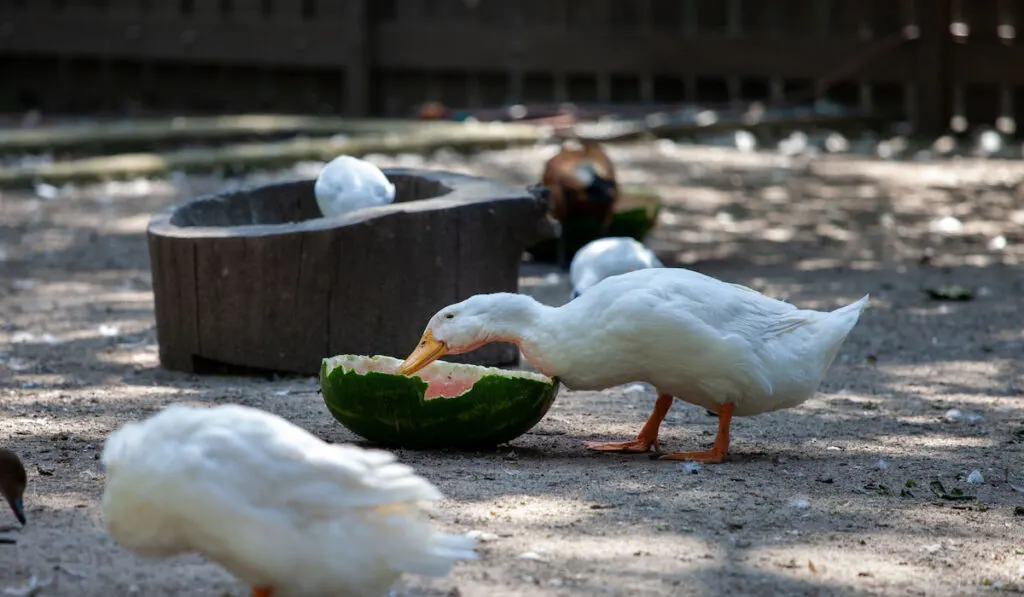
Ducks automatically reduce feed intake to minimize metabolism as it gets hotter.
Offering ducks water-dense treats like watermelon, zucchini, cucumbers, or blueberries can help keep them cool and encourage them to eat.
You can also add some cooling herbs to the waterers to entice them to drink more water. Moreover, freezing their favorite treats is another fantastic way to keep them cool and well-fed.
5. Change Feeding Time to Early Mornings and Late Evenings
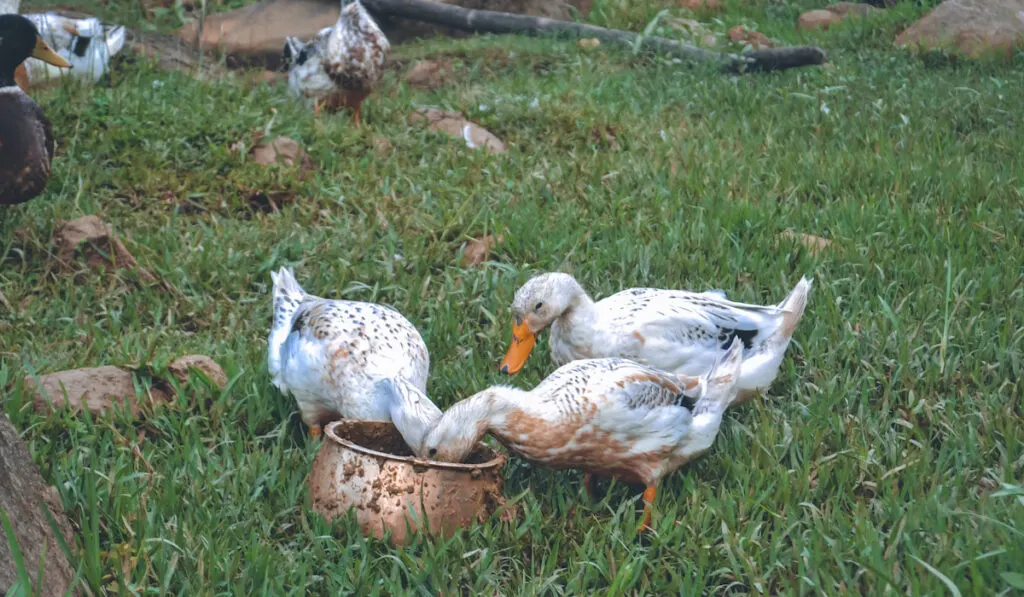
Ducks reduce their feed intake in scorching summer, as discussed above. But this consequently reduces their productivity. You can help to counterbalance this by feeding them early in the morning and late in the evening.
Alternatively, you can leave food in their housing overnight. Feeding your ducks when temperatures are low helps keep them cool and productive.
6. Plant Many Watery Vegetables
Another great idea is to plant vining crops such as squash, melons, and cucumbers for your birds. These crops can provide nutrition and help your ducks beat the summer heat.
They attract pests like bugs and slugs, which ducks enjoy feeding on.
Eventually, when the crops mature, likely in the summer, you can let your ducks feed on them.
7. Provide Adequate Clean and Cool Water
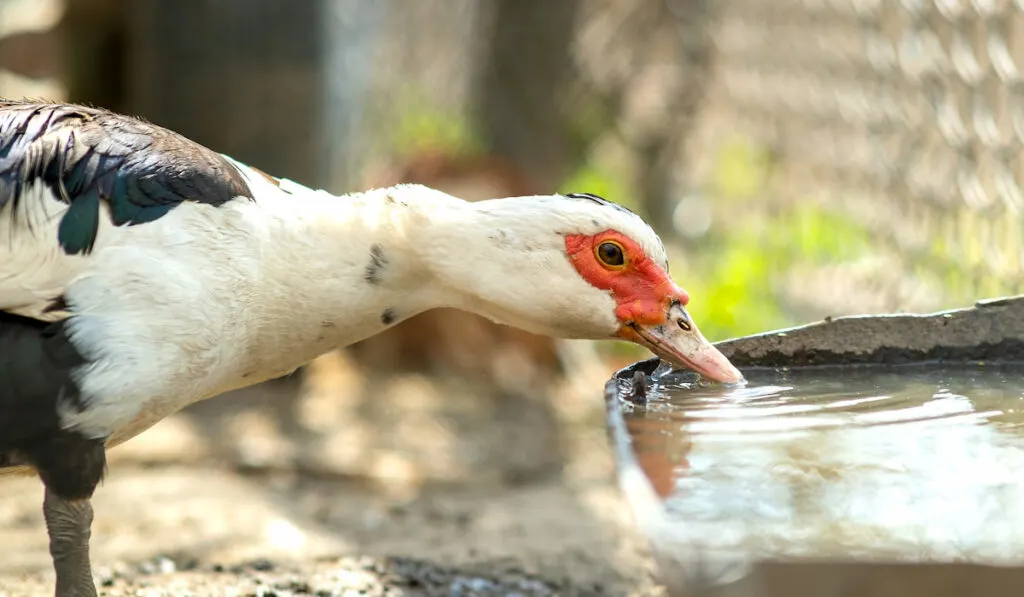
Like other livestock, ducks need plenty of fresh, cool, and clean drinking water to keep them healthy and cool. Moreover, a large percentage of eggs are water.
Thus, laying eggs takes up much fluid from the birds’ bodies.
Therefore, you should provide sufficient water to keep them hydrated, especially in the extreme summer heat. Place the water in the shade to encourage your birds to keep drinking.
You can place frozen water bottles in the water tubs to keep the water cool for much longer. Also, you need to clean the water tubs and replace the water regularly to ensure it’s clean and safe for your ducks.
8. Make Sure Their Housing Is Well Ventilated
Proper ventilation is crucial for your ducks’ housing. Poor ventilation slows down perspiration and evaporative cooling.
If the pen is not well ventilated, letting your ducks spend nights outside would be safer. Ensure you have an attached predator-proof night run.
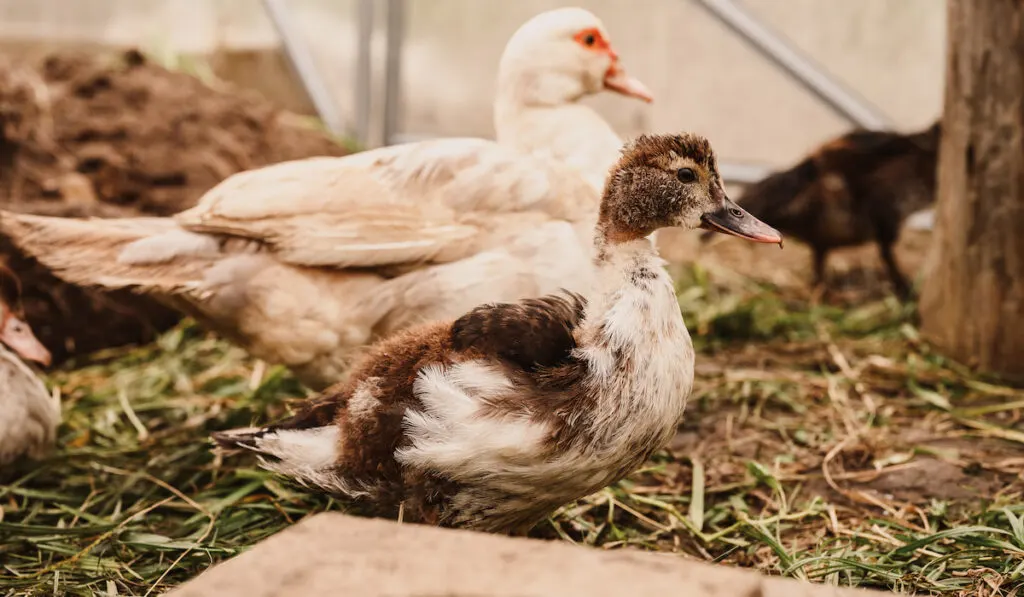
9. Install Multiple Water Points
Many duck keepers sometimes assume that one water point is enough for them. Besides the pool, ducks need separate freshwater drinking points. A single source of water could work during cooler seasons.
But in the summer heat, the birds may get weary and unable to walk to the pond. Therefore, installing as many water points as possible where your ducks can access them easily would be helpful.
An automated watering system can be beneficial, especially if you are away during the day. The system will ensure that your birds have a constant fresh water supply.
10. Watch Out for Parasite Infestation
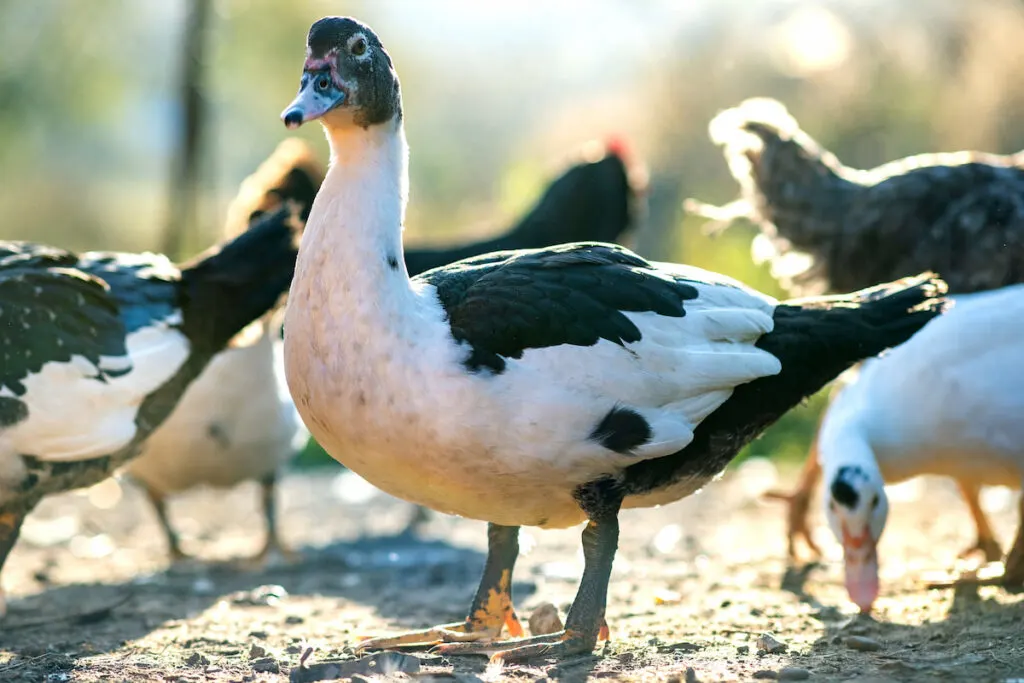
Ducks suffer parasite infestation through contaminated water, soil, or feed. And the prevalence of these parasites increases in the summer. Among the most common parasites affecting ducks are gizzard worms and coccidia.
Heavily infested ducks are prone to low egg production, weight loss, diarrhea, and in extreme cases, death. Anthelminthic drugs such as tetramisole and levamisole can help treat parasite infestation.
Proper sanitation of your birds’ housing and water and feed containers is the best way to keep away parasites. Also, regular checks by your vet can help detect and treat any infections in time.
11. Monitor Them Closely
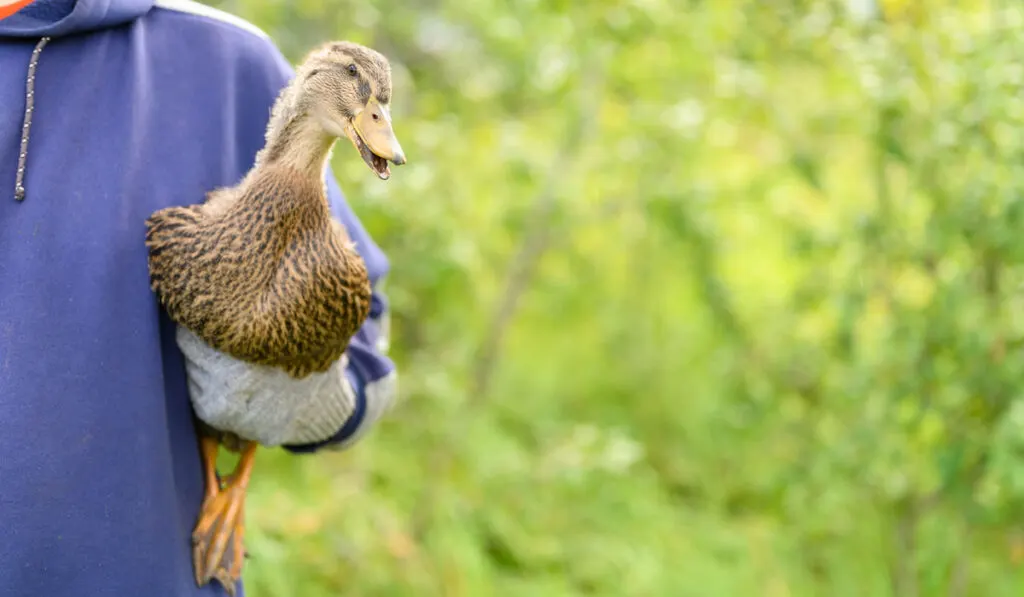
Closely monitoring your ducks during extreme summer weather is essential. By closely observing them, you can identify and replace dirty drinking water since the ducks will keep splashing around.
Also, you can easily spot heat-stressed birds and attend to them in time, thereby saving their lives.
Final Thoughts
When the summer heat is in full swing, many poultry farmers wonder how to keep their birds cool. As you can see, you can take many steps to protect your ducks from the hot and humid climate. These tips will help keep your ducks cool and healthy and make their summer enjoyable.
Resources
I wrote this article from my experience raising ducks and the following sources:
- https://www.gov.uk/government/publications/heat-stress-in-poultry-solving-the-problem
- https://extension.umn.edu/poultry-care-and-management/preventing-heat-stress-poultry
- https://assets.publishing.service.gov.uk/government/uploads/system/uploads/attachment_data/file/69373/pb10543-heat-stress-050330.pdf
